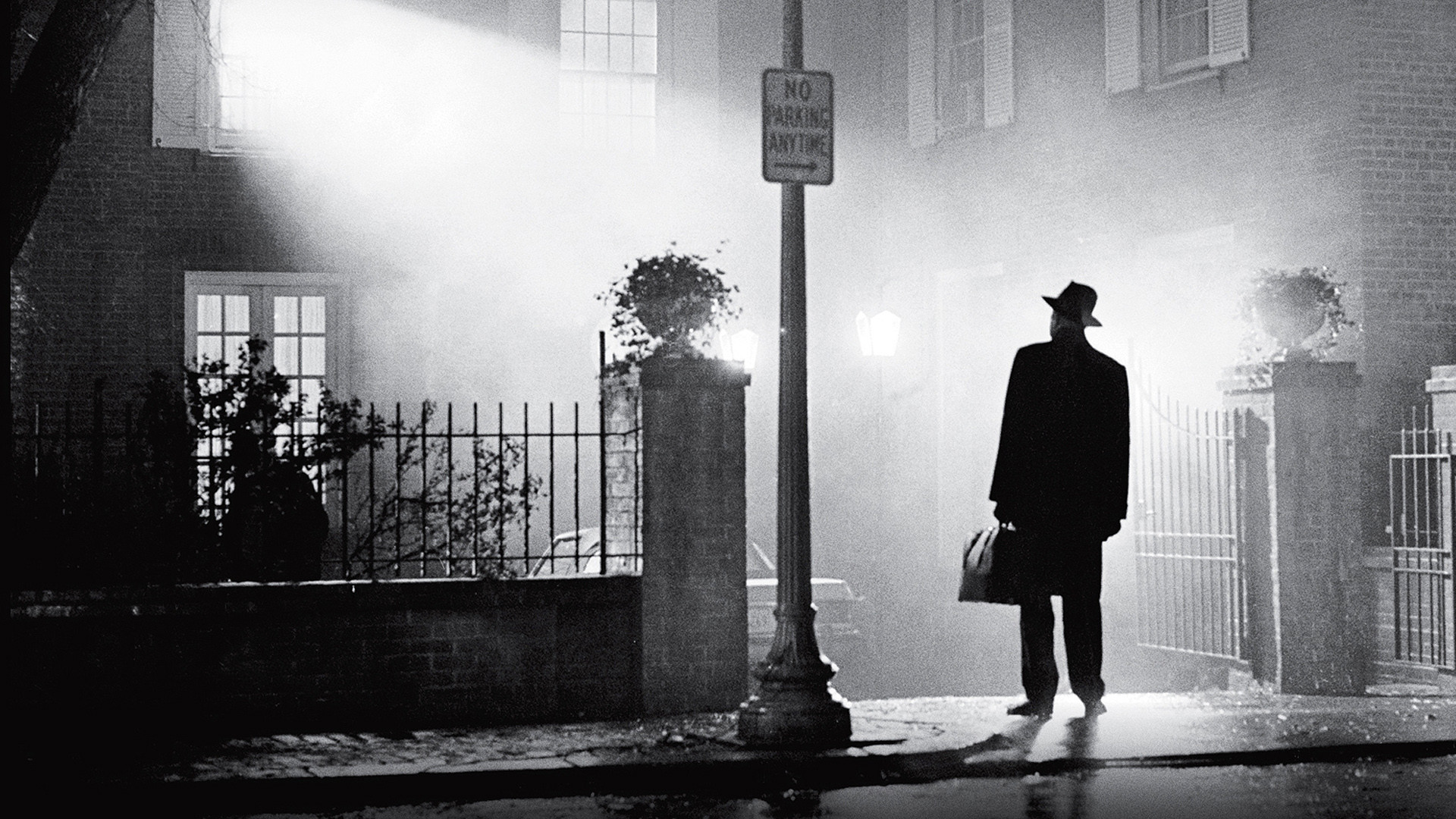
MPAA Rating: R | Rating: ★★★★★
Release year: 1973
Genre: Classic, Horror Director: Friedkin
A few weeks ago, I invited some college guys over to my house for a movie night. We had an assortment of films to watch via Netflix, but the one we landed on was William Friedkin’s horror classic, The Exorcist.
I don’t really do horror films very well. It usually ends with me whimpering with my face in a pillow. Choosing to watch the most terrifying film ever made was not my first choice. But they wanted to watch it, so watch it we did.
What I witnessed was one of the most powerful and overt portrayals of Christ’s power on film.
Unlike many modern horror films that choose to use overt sexuality, ubiquitous amounts of gore, and glorified violence/terror to capture audiences, The Exorcist tells a compelling drama about what we put our faith in, and the terrifying truth that there might be more to this life than science can explain. It is the classic conflict of good and evil brought to full force in the bedroom of a teen girl in Washington D.C.
If you haven’t seen the film, a brief summary: A mother (Ellen Burstyn) tries to help her teenage daughter (Linda Blair) whose aberrant behavior suggests that she is possessed by a spiritual entity. She seeks the help of two priests (Max Von Sydow, Jason Miller) to combat the demonic presence, leading to a dramatic confrontation between good and evil.
The majority of the film focuses on character development, especially the crisis of faith experienced by Father Karras (Miller) after the tragic death of his mother. Here is a priest who is wondering if God is still good, if God sees us in our suffering, if He is able or willing to help. His pain reminds me of David’s lament in Psalm 13:
How long, O Lord? Will you forget me forever?How long will you hide your face from me?How long must I wrestle with my thoughtsAnd every day have sorrow in my heart?How long will my enemy triumph over me?
An unlikely candidate to combat a demon, Karras nonetheless agrees to join Father Merrin (Von Sydow) in exorcising the demon. Merrin is having his own faith crisis regarding the spiritual evils in our world. The opening scenes show Merrin at an archeological dig in Iraq looking rather anxious as he unearths statues of idols. Having done an exorcism before, he fears that this new presence in Washington DC is really an old enemy coming back to haunt him. How do we deal with spiritual evil in our world? Should we be filled with fear? Scripture reminds us that we aren’t given a spirit of fear, but of power and love and self-control. Merrin enters into his enemy’s presence filled with all three.
Throughout the film, the demonic presence is fought with science and psychology. Drugs are administered, doctors are brought in, experts offer their opinions, all to no avail. This reveals a truth about our reality that many are hard-pressed to embrace–science cannot explain all the mysteries of our world, especially the spiritual realm. It cannot answer questions like “is there a spiritual realm?” or, “is there a God?” Science is a valuable endeavor, and not in opposition to theology or faith, but it is still incomplete. It is spiritually affirming to see in The Exorcist that the only source of help, the only place to find healing, is at the feet of Jesus.
(Spoiler Alert!) In the exhilarating and exhausting climax of the actual exorcism, Merrin and Karras combat the demon not with force or violence, but with Scripture and truth. While the possessed girl spews words of hate and lies–and sometimes just plain spews–the priests let the truths of Scripture and the love of Christ conquer the demon’s power. The demon tries to use Karras’ pain of his mother’s death to cause him to doubt God’s goodness; Merrin has to respond with Scripture and reminding Karras that Satan is first and foremost a liar. The most powerful scene in the film comes when the possessed girl rises off her bed with the priests shouting, “the power of Christ compels you!”
The power of Christ compels you. What beautiful and powerful words! As a final sacrificial act, Karras grabs the girl and commands the demon to take him, not her. Upon the demon entering him, Karras throws himself out the bedroom window and down the long Georgetown stairway so ominously revealed throughout the story. He takes sin upon himself, then sacrifices his own life so that others might live. While Karras’s sacrifice is allegorical, it’s a reminder of the truth found in 2 Corinthians: God made Him who had no sin to be sin for us, so that in Him we might become the righteousness of God.
So would I recommend The Exorcist to a follower of Jesus? I’m unsure. It’s a dark and disturbing film, filled with offensive language and terrifying moments. I would strongly caution anyone to use prayerful discernment before choosing to watch it, as I would never want anyone to spiritually stumble over a film recommendation. The Exorcist is not all theologically sound (I don’t believe a demon could “possess” Karras if he were truly a Christian). Yet it also affirms the power of Christ over all other authorities. Whether the filmmakers had those intentions or not, the message is clear: Jesus wins.
IMDB Listing: http://www.imdb.com/title/tt0070047/